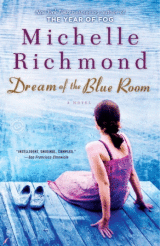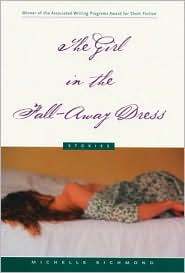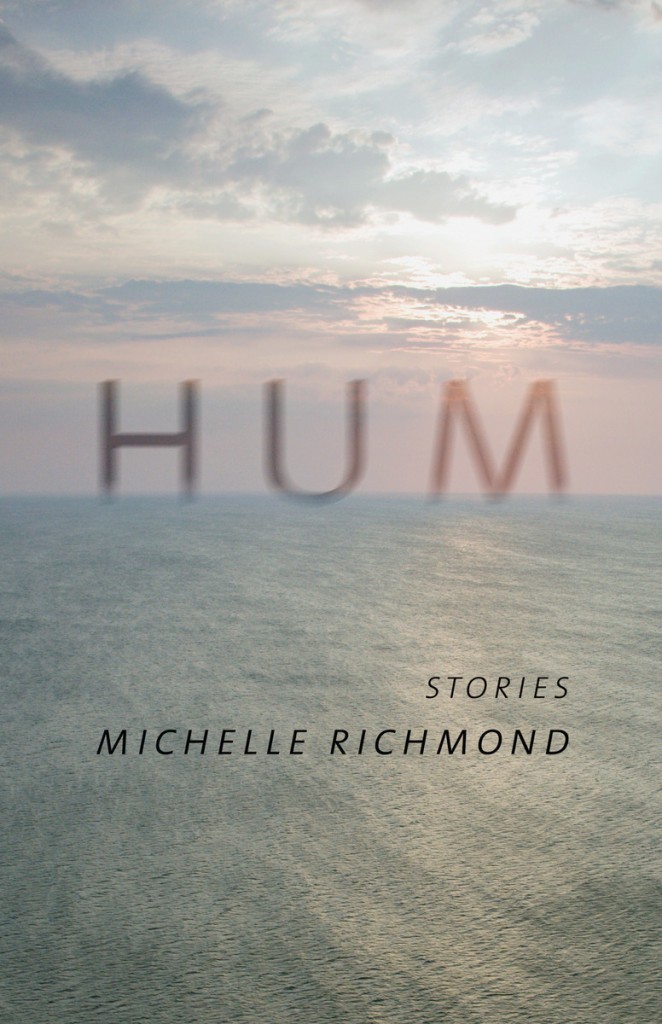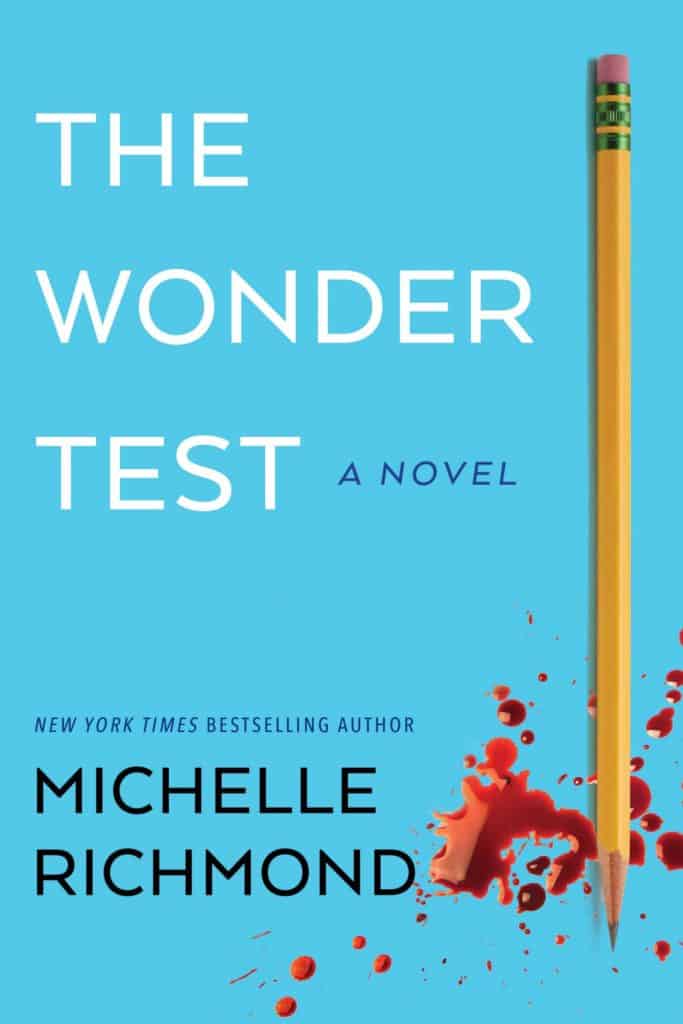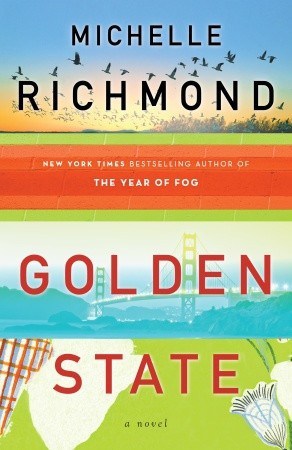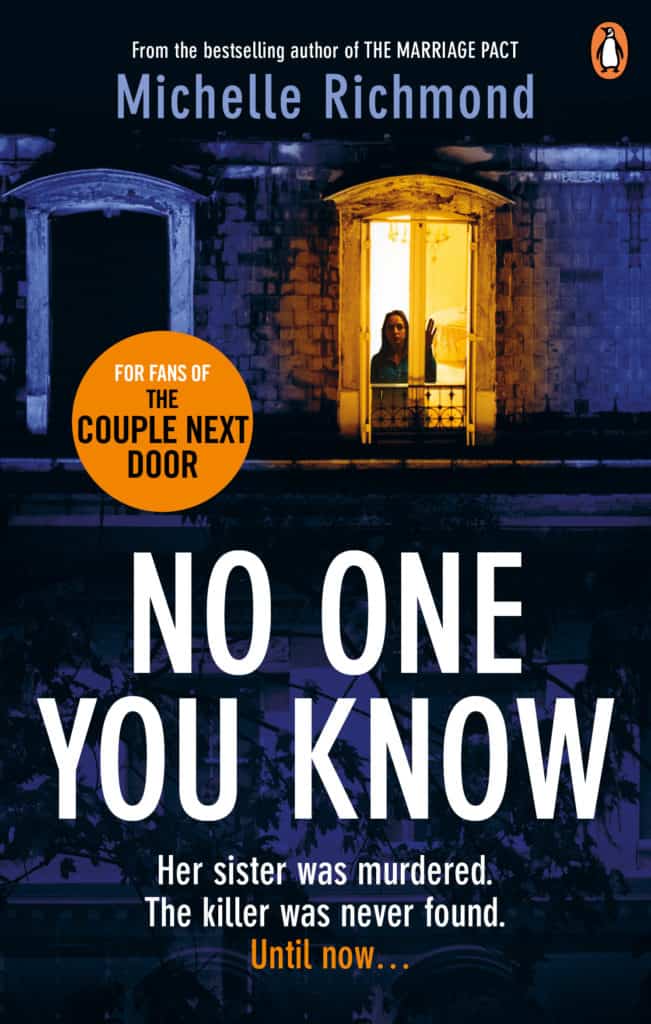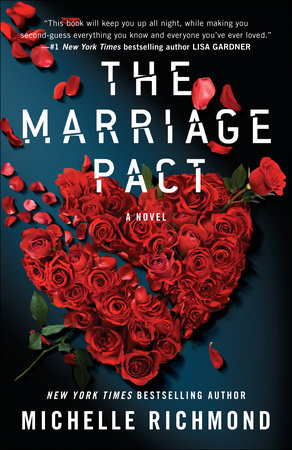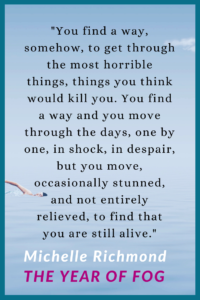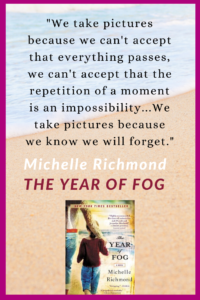Dream of the Blue Room
Jenny and Amanda Ruth were best friends in a small Alabama town until eighteen-years-old Amanda Ruth was murdered. Now, fourteen years later, Jenny has traveled with her husband to China to scatter Amanda Ruth’s ashes and finally fulfill her friend’s dream of visiting her Chinese father’s homeland. It’s also, Jenny hopes, an opportunity to repair her own troubled marriage. But as she journeys through a foreign landscape, the guilty secrets of Jenny’s past rise up and her life will be inexorably altered.
n the dream Amanda Ruth is not dead, she is only sleeping. We are lying under a sycamore tree beside a rugged mountain path. The grass around us is littered with the pits of fruits we have eaten: peaches and figs, plums and nectarines. Her fingers are still wet from our feast. In the cool mountain light, they glisten. So elegantly she sleeps, one leg bent slightly beneath her, one arm flung wide on the grass.
I slide the strap of her sundress off her smooth brown shoulder. She does not stir. All down the front of her dress are small blue buttons. I undo them one by one, careful not to wake her. A fine rain begins to fall. I feel her fingers in my hair and discover that she is awake, smiling, watching me.
"You look different," I say. "Older."
"Yes. Thirty-two, now."
"But I thought you had died."
"Died?" she says. "What do you mean?"
READ MOREI tell her never-mind. I tell her it was only a dream. She asks me to describe it. I say, "You were dead. You'd been dead for a long time. I missed you terribly. I went to China to find you."
"No," she says. "You went to China to lose me."
"That's right. To let go of you. But now it doesn't matter."
The wind rustles the tree above us; raindrops are slapping the leaves, the sound getting increasingly louder. Soon, the drops will work their way down through the branches and begin to fall on us.
"You went to China?"
"Yes."
"And what did you see?"
"Well," I close my eyes, trying to remember, trying to come up with some answer, some truth that will satisfy her.
"Was it wonderful?"
"Yes," I want to say. I want to tell her that China is everything she dreamt it would be, a strange but familiar place. I want to tell her that I finally lived up to my promise, and we have been to the center of the earth together. But then the rain stops, the mountains disappear, and Amanda Ruth is gone.
Chapter Two
The shellac is smooth beneath my fingers, rising slightly over the photos, a random Braille I know by heart. Amanda Ruth would have laughed at it, her mother's lack of good taste, the collage of photographs she carefully cut and arranged on the round cookie tin: Amanda Ruth as a baby, wrapped in her proud father's arms; Amanda Ruth in her majorette's costume with gold piping at the shoulders; Amanda Ruth sitting on the narrow bed in her dorm room at Montevallo. I hold the tin in my lap and recline on a deck chair. Its metal seat is wet from the spray.
My husband, Dave, is down in our cabin sleeping. He does the sleeping for both of us. I do the staying awake. I am an insomniac of the old order. I spend long nights waiting for my mind to snap shut, mornings bent over the coffeepot, hands shaking from exhaustion and caffeine. I haven't slept since we left New York two days ago.
It is five past midnight. Muddled voices drift up from the lounge. Lights glimmer along the riverbank. There is the cool dark drift of the Yangtze, the smell of something not quite clean. I feel a welcome heaviness approaching, a soft weight pushing against my eyes. I dream of water, a white body drifting naked upon it. I extend my arm and bring the body toward me, look into the round wet face of Amanda Ruth. She opens her eyes, takes my hand and stands; we are on land now, walking, the jagged pebbles of the riverbank cutting into our bare feet. Amanda Ruth is eager to show me something. We walk for many hours, coming at last upon the mouth of a cave. The entrance to the cave is thick with growing things.
When I wake, it feels as though I have slept for a long time. I lift my watch to catch the moonlight, scan its small silver face.
"Twelve forty-five," a voice says. Startled, I turn to see a man sitting a couple of feet away. He is long and slim and gray-headed, with a broad, handsome face and thick eyebrows. He looks to be in his early fifties, although he could probably go several years in either direction. He wears a white oxford with the sleeves rolled up to his elbows, loose linen pants and brown sandals. His toes curl inward, oddly out of tune with the lean symmetry of his body. He holds a glass of white wine in each hand.
"Here," he says.
I accept, taking the glass by its stem. "Thank you. Now, I suppose your plan would be to get me drunk and then toss me into world's longest river."
"Third, actually." His accent is Australian. "After the Congo and the Nile. Don't worry, it's too risky. There'd be a search of the ship come morning, when your husband reports you missing." His speech is slow, as if he has difficulty forming words, but in his eyes there is none of the dullness of a drunk.
"Australia?"
"Perth."
"Maybe they'd think I tossed myself over. I'm sure it's been done." I taste the wine, which is too sweet. Within moments I feel a pleasant light-headedness coming on. "What makes you so sure I'm married?"
"I saw the two of you this afternoon in Shanghai. You bought a scarf before boarding the ship. It was dark green. The woman who sold it to you thought it went well with your eyes."
"You speak Mandarin?"
"I try," he laughs, "but I wouldn't trust my own translation." He scans the river. I study his face in profile--the long line of his jaw, the thick tendons of his neck, a tiny mole riding high on his cheekbone. He turns suddenly, locks eyes with me in that way men do when they know you've been staring.
I look away, clear my throat. "Are you here on business?"
"Pleasure. Sort of."
"Traveling alone?"
"Who's asking?"
"It couldn't be me--I'm a married woman." He is staring at me, his eyes focused somewhere near my mouth. I can't remember the last time I flirted with anyone. It feels good.
"Yes," he says, "I'm on my own." He raises his glass in my direction. "To you, Jenny, and your first trip to China."
I hesitate. "I never told you my name."
"Sorry. This afternoon I heard your husband calling you. He was trying to catch up. You were in the market on Huaihai Road, remember? He shouted your name several times, and finally you stopped and waited for him."
"You were spying on us?"
"You make it sound so sinister. I was just observing. Look, I'll tell you about myself, and then we'll be even. My name is Graham. I'm fifty-three years old. I have no children, no wife, no siblings, no family at all to speak of. I was in the crane safety business for twenty years. I don't eat carrots or squash, and I'm a big fan of sweets of any kind, particularly Key lime pie. I'm rotten at poker but good at backgammon." He takes a long sip of wine. "Now you know more about me than I know about you, which means you've established a power position in our relationship."
I can't help but laugh at Graham's rushed monologue. "You win."
"What do you have there?" he says, eying the tin.
I lie. "Just some postcards."
"You'll have plenty of time for writing. They're predicting rain. Of course, Xinhua is always coming out with exaggerated reports of flooding to drum up support for that awful dam."
The ship jerks, tilting us starboard. I reach out and clutch Graham's arm. The ship rights itself. Embarrassed, I let go, noting the tiny pink marks my fingernails leave on his skin. "How did you know it's my first trip to China?"
"In Shanghai you looked nervous, like you'd just landed on another planet. Let me guess. You're from the Midwest. One of those wheat and corn places."
"Not quite. A small island near New Jersey. You may have heard of it."
"New York City?"
I nod.
"I've always wanted to go." He pours me another glass of wine.
The air smells like rain, mixed with a hint of vinegar. I feel myself relaxing for the first time since Dave and I set out for China. On the plane from JFK to Hong Kong we argued. From Hong Kong to Shanghai we hardly spoke. When I reached over the armrest on the last leg of the flight, hoping for a truce, he pulled his hand away as if he'd been stung. I can't help but wonder if Graham has me pegged. Does he look at me and see a woman trying to piece her marriage back together? Do I give off some vague scent of desperation and neglect that makes me an easy target for men on the prowl? If this were Animal Planet, I'd already be dead or pregnant.
"Earlier," Graham says, "I saw your husband with the captain."
"I'm not surprised. By tomorrow Dave will know everyone on the ship." I picture him standing with his hands in his pockets, chatting up the captain. He would ask about celestial navigation, slowly draw out the story of the captain's maritime career, inquire about the wife and kids. It's one of the things I've always admired about my husband; he can convert strangers to friends within minutes.
Graham settles into his chair as if he plans on staying for a long time. In the sky there are no stars, and only the dimmest suggestion of a moon, the round warmth of it emerging periodically from a mass of slowly moving mist. Low hills make soft silhouettes against the sky. In the darkness, the river looks black and endless.
Graham glances over at my empty glass. "Impressive." He lifts the bottle to pour me another.
My head feels warm and slightly off-center. "I better not. I drink when I'm nervous."
"Do I make you nervous?"
"It's not often I discover a strange man watching me sleep."
"It's a habit, I confess. Most people seem so much friendlier when they're sleeping."
"Did I?"
"Yes. When you woke up you started asking me all sorts of questions, demanding that I account for myself. But when you were sleeping I was free to observe without hassle."
"Spoken like a true voyeur."
"You were completely yourself, because you didn't know to erect a defense against me. Like today in the market. You and Dave were among strangers, and you thought you would never see any of these people again, so you didn't bother to be discreet. I even saw you arguing."
I think back to the afternoon's small battles. There were several, but I can't focus on a single one. Graham stares at me, expectant, as if he's waiting to hear the source of my marital troubles.
"These days, we're always arguing about some silly thing or another. Dave didn't really want to come to China in the first place."
What I don't tell Graham is that Dave and I have been separated for two months, living disconnected lives on opposite sides of Central Park. We'd planned and paid for this trip months before the separation. To his credit, Dave understood how much I needed to make it, to fulfill some unspoken obligation to Amanda Ruth, and I think that's why he agreed, in the end, to come along. As we rode together in the taxi from his place to the airport, two duffle bags squeezed between us on the seat, I secretly hoped that this trip might somehow save our marriage. I thought that if I got him away from New York City, away from our routine, we might stand a chance. I imagined us discovering each another anew in this exotic place, where none of the old rules would apply.
Suddenly Graham stands, moves his chair a few inches closer to mine, and sits down again. "What do you think of me?"
I consider my words carefully. We are two grown adults who know, at least vaguely, the rules. Two adults on a ship in the dark while my husband, who has fallen out of love with me, is sleeping. Everything I say to Graham from this point on is a negotiation. Each word defines the boundaries between us. "I'm not sure yet."
We sit for a while in silence, and I pretend to sleep. At some point, a glass shatters. I open my eyes to find Graham's wineglass lying in pieces by his feet.
"It's my hands," he says, all his cool composure gone. His hands are in his lap, palms up, and he's looking at them as if they belong to someone else. "You probably think I'm drunk." He sweeps the glass shards under his chair with his sandal. "You come out for a quiet evening and here I go breaking things. Do you want to be left alone?"
"It's all right. You're pretty good company."
"What about Dave?"
"Won't even know I'm gone."
"We'll sit here all night, then?"
"It's a deal."
"Good. I don't get much sleep these days anyway."
"We have something in common. I'm an insomniac too."
"Not true. I caught you sleeping."
"Only napping."
"Your eyes were moving," he says. "What were you dreaming about?"
"I can't remember. It was nothing, just a dream."
"Let us learn to dream, gentlemen, and then we shall perhaps find the truth."
"What?"
"Friedrich Kekule, the German chemist."
In college, I knew a guy who never read entire books, only first chapters. From these he gleaned quotes that he kept in a big red notebook under various headings: nature, romance, fear of death, etc. Once, in a Lower East Side apartment after three martinis, he confessed to me that he memorized these quotes as a way of attracting women. He'd drop them into conversations at parties, in bars, on first dates. His tactic seemed to work; he was rarely without a date. Ever since, whenever a man reels off an interesting quote, I find myself testing him.
"Kekule?" I ask. "Wasn't he the one who said politics is just applied biology?"
"No, you're thinking of Ernst Haeckel. Kekule found the molecular structure of benzene. It came to him in a dream." He talks on about Kekule for a couple of minutes before stopping midsentence. "I suppose I'm a bit of a nerd," he says, blushing.
We fall into an easy silence. Beneath us, the grumble of the engine, and in my bones a dull vibration. Every now and then the ship passes a cluster of lights along the riverbank, or changes course to overtake a barge laden with large rectangular boxes. The lights of passing sampans blink in the dark. One heads straight toward us, and I'm certain the Red Victoria will slice right through it, but at the last minute the tottering boat swerves out of our way.
COLLAPSEon USA Today:A dreamy, haunting work with a deeply personal feel. Any time a work of fiction raises our sights to higher truths, as this one does, the writer has done her job.
on Kirkus Reviews:Some childhood relationships are so fulfilling they shape our lives and leave us wondering why they didn’t last longer. Richmond captures, explores, and intertwines these bonds so elegantly, you might even think the relationships are your own.
With affecting elegance, author Richmond moves from Jenny’s past to her present, from her memories of (and guilt about) Amanda Ruth to her despairing hopes of saving her marriage—conflicts that are clarified against a perfidy-filled backdrop of Chinese double-speak. In a splendid close, Jenny finds herself in an abandoned village with a blind old tea-seller who offers her, with eloquent finality, ‘the secret heart of China.’ Eloquently, the naïve American finds heroic fortitude in an ancient, ambiguous land
